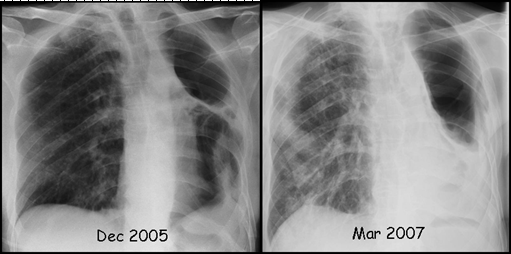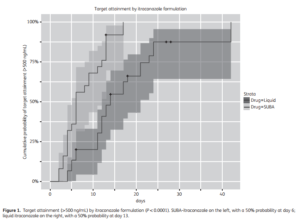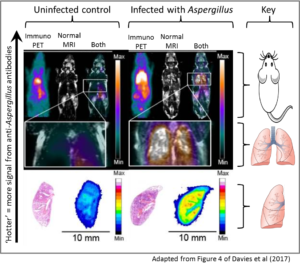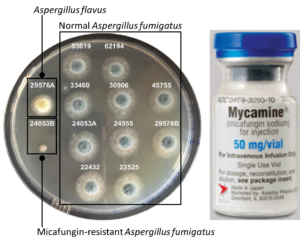Submitted by BenAtkinson on 5 January 2016

Chronic Pulmonary Aspergillosis (CPA) is a severely debilitating disease affecting 3 million people worldwide (most as a complication of pulmonary tuberculosis), often resulting in shortening of lifetime and reduction in quality of life for the affected patients. However it can be treated and managed effectively. Diagnosing CPA is difficult, especially in its early stages of development and improvements are needed in the diagnostic tools and techniques available.
This new paper looks at one diagnostic tool – the detection of IgE immunoglobulins in blood. The use of blood samples has the advantage of better sensitivity and convenience over other forms of tissue sampling such as biopsy and broncho-alveolar lavage. Quoting from the paper:
‘Raised levels of Aspergillus-specific IgG, also fulfil the microbiological evidence’ criteria for CPA diagnosis. In a recent large CPA case series only 26% of patients had positive culture, but 99% had raised Aspergillus-specific IgG.’
This suggests that testing patients IgG would be a much more accurate and sensitive way of diagnosing their condition. However no work has been published on assessing and comparing for this purpose the several different commercial kits available to carry out these tests. To address this, researchers in this paper took sera from 241 patients with CPA and 100 healthy blood donors and tested using five different commercial kits using Aspergillus-specific IgG assays plus a kit that used Aspergillus-precipitin testing using Microgen Aspergillus antigens’.
The results of the study concluded that the Assay – ImmunoCAP and Immulite were statistically superior to that of the other assays tested. Precipitins tested poorly for this purpose.
Quoting conclusions:
The Immulite and ImmunoCAP assays performed so well that screening for the earliest signs of CPA after tuberculosis becomes possible. This is likely to yield a major health benefit with early diagnosis and treatment of CPA. If the predicted prevalence of CPA is confirmed, significant effort will be required to expand access to Aspergillus-specific IgG testing, which may require the development of new point-of-care test formats.
Earlier diagnosis of CPA through these techniques may lead to earlier treatment, resulting in better control and greater quality of life of those patients affected.
News archives
-
Title
Date










